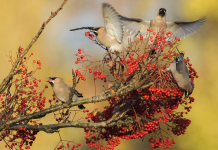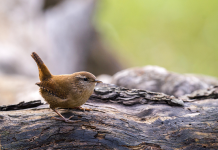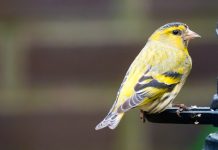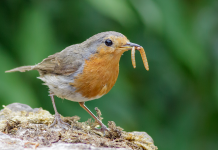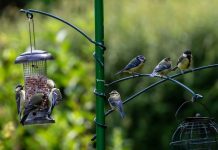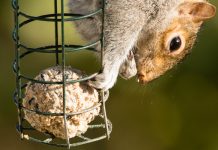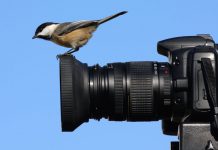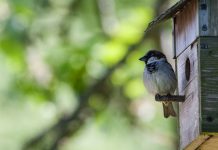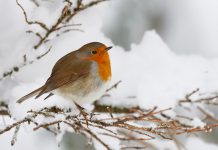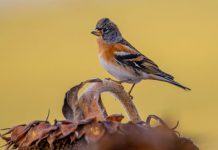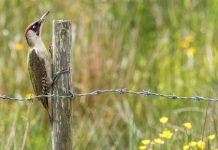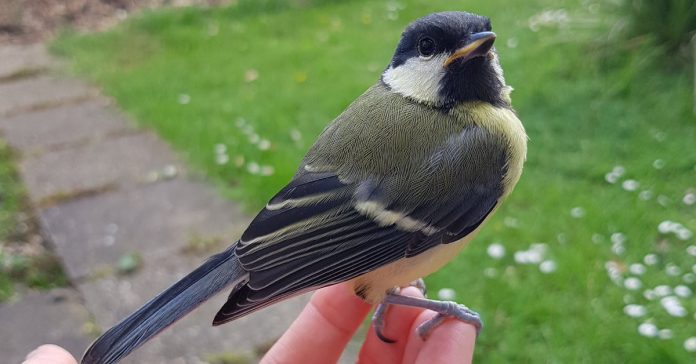Lead pic credit: Sherri Dawn
We all love seeing those beautiful garden birds visit our gardens, chirping away on the feeders. Unfortunately, it’s not always plain sailing for our feathered friends. In the heat of the moment, with a predator lurking nearby, they can sometimes get into a spot of bother when it comes to our windows.
It’s not a situation that anyone wants to see, but there are a few things you can do to help them recover and prevent it from happening in the future.
What can I do to help?
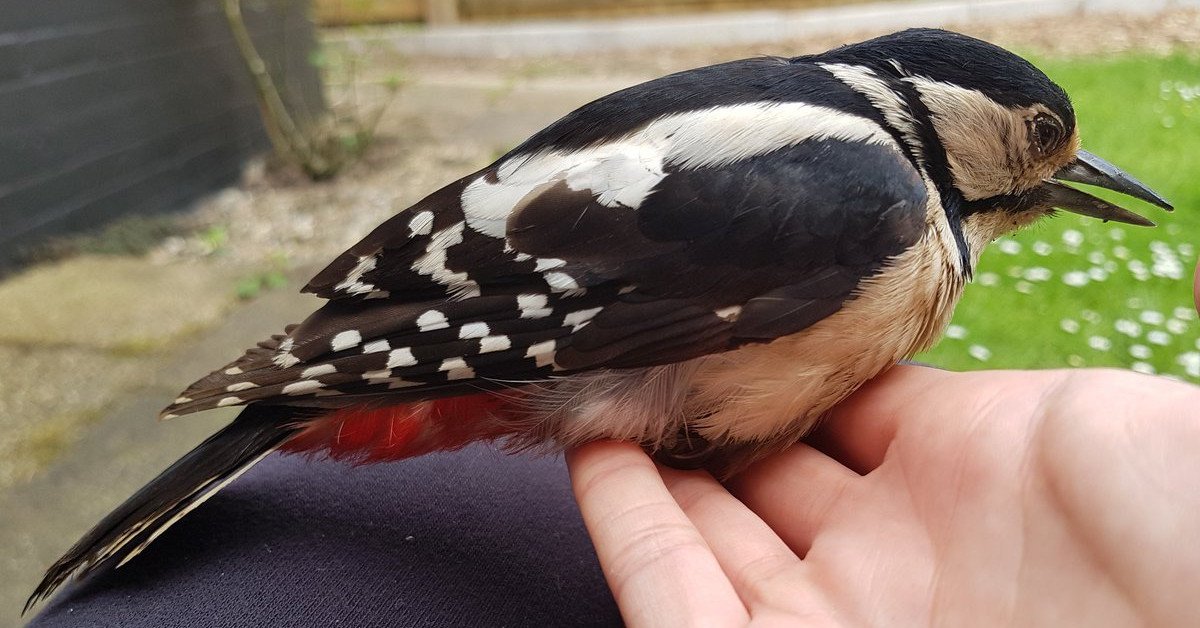
When you first hear the bang on your window, have a look around to see where the bird has landed. Watch it for a few minutes to see how it reacts; if it flies off, then it’s probably fine. However if after about five or six minutes it’s still lying comatose on your lawn, then the bird will probably need your help.
First, inspect the bird without touching it to see if there are any visible injuries. The best way to handle the bird would be to wear gloves, or to pick them up gently with an old towel. This is just in case they might be carrying any diseases!
If they’re lying on their back, flip them the right side up so that they can function properly. If they have any serious injuries, get them to a vet or wildlife rehabilitator straight away.
Keep them safe

For less serious injuries, the bird will need to avoid being stimulated as much as possible. Don’t poke them, or try to feed them, as you may be doing more harm than good. The best course of action to take is to place them in a box lined with newspaper or old rags, and then put the box in a dark, quiet place. If it’s safe to leave them outside you should do so, but by keeping them in a ventilated box they will be secure from any predators that might be lurking around.
Listen out for sounds of recovery; ideally you should leave the bird alone for at least two hours so they can get over their traumatic experience. However if you can hear them trying to move around, it’s time to set them free!
If after two hours the bird still isn’t showing signs of getting back to normal, then you will need to take them to the vet or your nearest wildlife rehabilitator to make sure that it gets the help it needs.
Top tip: Make sure to open the box outside though, otherwise you might have a bit of fun trying to help them escape your house.
How can I prevent birds flying into windows?
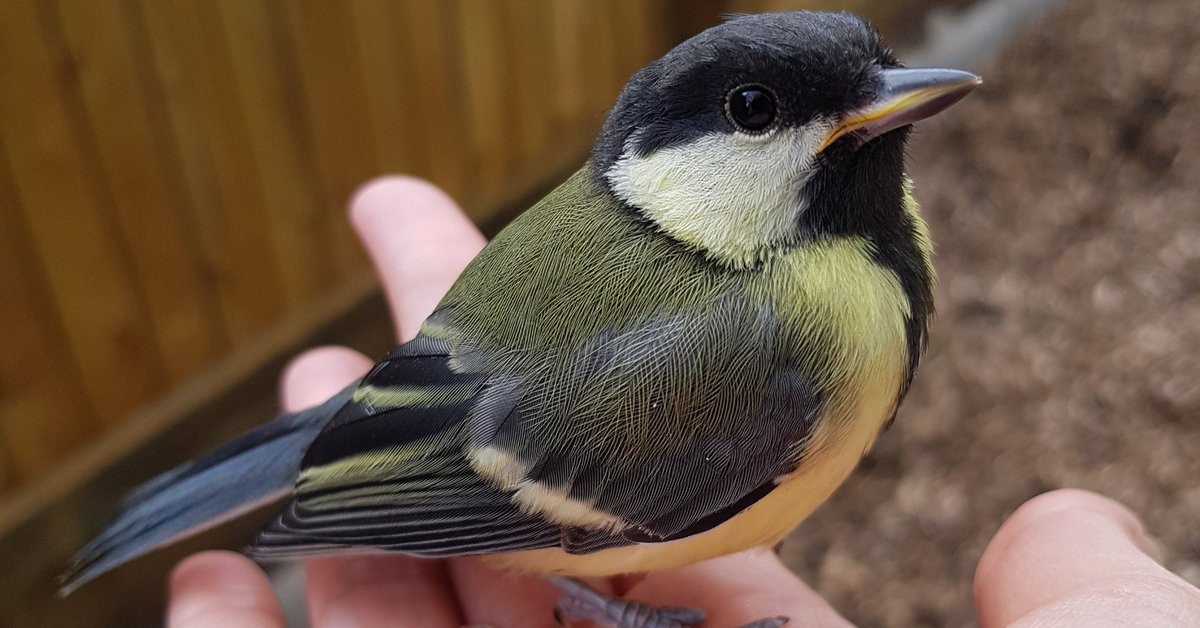
Birds can’t tell that glass is a solid surface; with the reflections of sky and trees flashing back at them, they think this is a safe place for them to fly. Or sometimes they spot their own reflection and think another bird is threatening them, and fly to defend themselves.
There are a few things you can do to help them realise that the glass isn’t safe. Adding things that dangle in front of your windows, like wind chimes, will deter birds from coming near them. Hawk decals or owl figurines are thought to be not very effective, as the birds will notice how these images don’t act like a normal bird of prey. Your best bet is to install interior blinds or exterior shutters, and to remove any house plants from view so that the birds won’t think it’s a safe place to fly.
You could even try adding planter boxes to your window sills, as birds will be more tempted to land in them than fly through the glass. Keeping bird baths or feeders within three feet of windows will ensure that the birds can’t get up to speed to do any real damage to themselves if they do fly into the glass.
Before you go…
We also asked vet Dr Abbie Jones what was the best thing to do if you find a bird that has crashed into your window.
“If the bird is tilting their head then get them to a vet because it could be a sign of head trauma, and anything with the wings/legs! Birds breathe very differently to mammals so if you do need to hold them (although this should be kept to a minimum) be careful not to put pressure on their sternum/breast bone as it needs to be able to move for them to breathe. Towels are also very useful for holding birds!”
Hopefully you’ll have a happy bird that is well enough to fly away, but if in doubt, make sure to take them to your local vet to get them the care and attention that they need!



